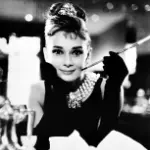Considering Martin Scorsese's recent failure, I had significantly lowered my expectations for Ridley Scott's latest film. I had been eagerly anticipating it for almost three years. Unfortunately, it still fell far short of expectations. If "Killers of the Flower Moon" was a overlong mediocre work, then "Napoleon" feels like an ill-conceived attempt.
As a non-doctrinaire fan of Napoleon, I don't mind adaptations altering historical facts or emphasizing specific aspects of a personality. After all, movies are dramatizations, but establishing believability is another matter entirely. Ridley Scott's "Gladiator" and "Kingdom of Heaven" both underwent substantial alterations, at least wrapping Western values within a historical shell. The multiple portrayals of the protagonist in "Napoleon" seem to stem from an excessively narrow interpretation—depicted with a ferocity reminiscent of Hitler, alternating between a sycophantic follower and a neurotic clown. This presentation, delivered in a mocking tone, results in a rather distorted depiction.

Satirical comedy need not stick to the traditional path, but unlike the smooth and comprehensive execution in "The Death of Stalin," Ridley Scott evidently failed to balance between comedy and drama. The film's distortion and exaggeration of Napoleon's negative traits conflict with its disregard for his exceptional military and political abilities, as well as his charismatic personality. This renders the film unable to elucidate how such a complex figure ascended to great heights. This lack of nuanced storytelling, combined with a fragmented portrayal of fate devoid of multiple layers, leaves Napoleon's rise feeling inexplicable. The film seems to suggest that Napoleon randomly assumed power, glossing over the significance of the Napoleonic Code. A longer director's cut, possibly a four-hour version, might address some of the superficial narrative flaws. However, the deeply embedded elements of arrogance and prejudice within the film's portrayal appear unalterable to me.
Focusing on the relationship between Napoleon and Josephine might have charted a different course, but compared to the romantic and morbidly pathological love relationship in "Phantom Thread," this film's adaptation has already gone too far. The crucial decisions for Napoleon's return home twice are portrayed as due to resentment over his "unfaithful wife," overshadowing his genius and the historical currents—reduced entirely to lust-driven behavior... Joaquin and Vanessa's performances are excellent, but the lack of chemistry fails to make this emotional thread sufficiently convincing.

The film truly delves into three battles, all of which adequately reflect the author's attitude: the Battle of Toulon (a youthful and cowardly rise to fame), the Battle of Austerlitz (cold-blooded slaughter overshadows military strategy), and the Battle of Waterloo (the fall of a former hero). Although the movie simplifies the actual complexities of these battles, the grand scale of mise-en-scène and the pacing demonstrate Ridley Scott's directorial prowess, ensuring a certain level of spectacle.

Known as “the greatest visual master since Kubrick”, and also someone who is a big fan of Kubrick, Ridley Scott initially had the opportunity to inherit Kubrick's legacy and complete "the greatest movie never made." However, it appears that an opportunity has been missed. After reading Kubrick's script for “Napoleon,” I noticed numerous similarities in plot choices, dialogue handling, and even montage, leading me to suspect that both the director and screenwriter might have been exposed to this version. Kubrick's comprehension of Napoleon was profound, shaped by his tremendous effort, which involved extensive research spanning over two years—reading hundreds of documents and conducting extensive fieldwork. In striving for an objective portrayal of historical weight, a significant portion of the script was initially dedicated to a voiceover, although this was later dismissed. Many insightful dialogues were drawn from historical records. The original plan was to create an epic duology, each part spanning three hours. However, what remains of Kubrick's vision is a 148-page shooting script and a database of over ten thousand cards. In contrast, Ridley Scott's rendition feels somewhat superficial, almost resembling a ploy to captivate the audience. The detailed emotional depth present in Kubrick's script seems to have transformed into an unbelievable romantic narrative under Ridley's direction, which is disappointing. We feel let down by Ridley Scott's adaptation and even mourn the unrealized potential of Kubrick's unmade masterpiece.








Share your thoughts!
Be the first to start the conversation.